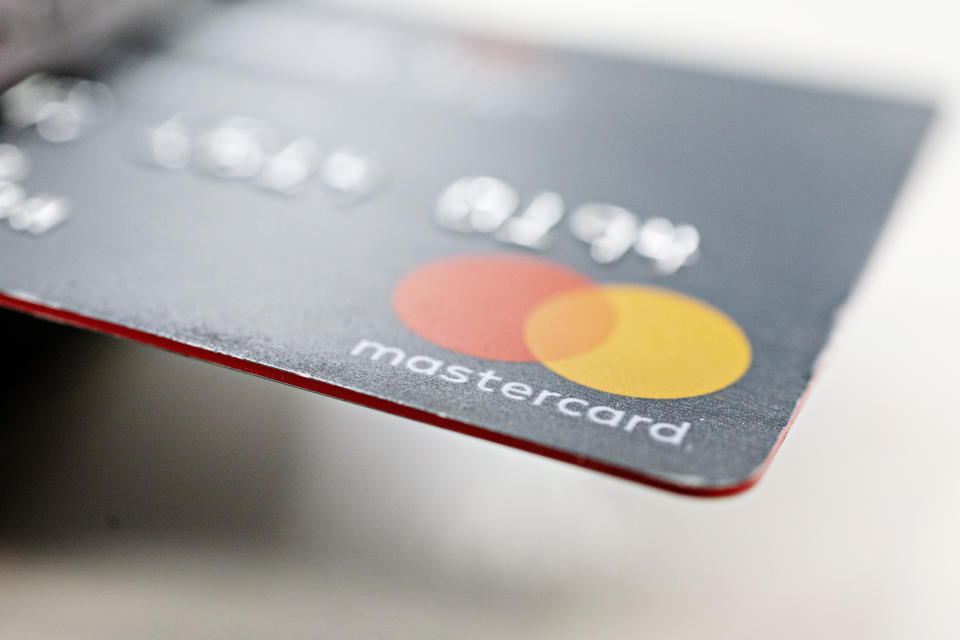Mastercard poised to start processing payments locally in China

Mastercard's overall card spending held up during the first quarter, with worldwide gross dollar volume up 10% over the same period a year earlier, buoyed by healthy travel spending, the ongoing momentum of more contactless transit payments and strong cross-border transactions, the card network announced Wednesday.
U.S. gross dollar volume increased 6% during the quarter ended March 31, 2024, underscoring its slower growth compared to other regions. Minus U.S. spending, Mastercard's worldwide gross dollar volume increased 13%, propelled by a 21% surge in Latin America, a 16% increase in Europe and an 8% rise in Canada.
The Asia Pacific Middle East and Africa region surpassed the U.S. slightly with a 7% increase in gross dollar volume. Even though Asian economies have been constrained from a relatively late post-pandemic recovery, Mastercard sees future growth opportunities across Asia, and this month the firm will process its first payment card transactions in China through a joint venture announced last year with a local processor there, Mastercard CEO Michael Miebach told analysts during a conference call to discuss quarterly results.
"This is a medium- to long-term opportunity [to process card payments locally]," Miebach said, noting that Mastercard is also working with Chinese merchants to expand Mastercard acceptance in local digital wallets "so they can be used at the whole wide range of merchants in China" as the Chinese government pushes to increase inbound cross-border travel.
Mastercard is also focusing on opportunities to convert cash to digital transactions in countries like Indonesia, where about 70% of transactions are still conducted in cash, and Italy, where 45% of purchases are made with cash, Miebach said. In cash-centric Germany, Mastercard recently expanded card acceptance for health care payments. Across Latin America, Mastercard is seeing strong digital-payments growth in countries including Mexico, Colombia and Chile.
Tap on Phone is driving significant growth for merchants around the world who are using Mastercard's approach to accepting payments directly on smartphones, with 1.5 million merchants in Brazil now live with the technology, Miebach said.
Global cross-border payments volume rose 18% during the first quarter compared with the same period a year earlier. Mastercard recently dubbed that business Mastercard Move, now encompassing its real-time debit service Mastercard Send and its cross-border payments service across 10 million endpoints worldwide, according to Miebach.
Contactless payments continue to gain momentum around the world, with two out of three in-person transactions now conducted by tapping a card or a device, versus one in three prior to the pandemic, Miebach said. "That is multiple transactions as consumers get into open-loop [mass-transit payment] systems multiple times a day. And when they get out of the station, they use that same tapping behavior as they buy a coffee and so forth."
More than one in four Mastercard transactions are tokenized as of the end of the first quarter, up 50% from a year ago, which has significantly increased card security, according to Miebach.
The company is bullish on the potential impact of a recent proposed settlement card networks reached with merchants to cap interchange rates, he said. (Several merchant associations oppose finalizing the settlement.)
"We're going to have a mild reduction of interchange rates … and we're providing more clarity and simplification around surcharging rules and discounting rules," Miebach said. Broadly speaking, Miebach said he doesn't expect a major business impact, but noted that the settlement, if finalized, could represent "a lot of competition in the payments market."
Mastercard's net revenue for the first quarter was $6.3 billion, up 11% from $5.7 billion during the same period a year earlier, on a currency-neutral basis. Adjusted net income was $3 billion, up 16% from $2.7 billion during the year-earlier quarter. Adjusted operating expenses during the recent quarter were $2.6 billion, up 9% from $2.4 billion during the first quarter of 2023.
Mastercard's results were modestly above expectations, according to analysts with HSBC Global. "While our base case outlook entails healthy top-line and EPS growth, we believe a more rapid-than-expected lowering of volume growth could trigger a valuation de-rating," the firm said in a Wednesday note to investors.
